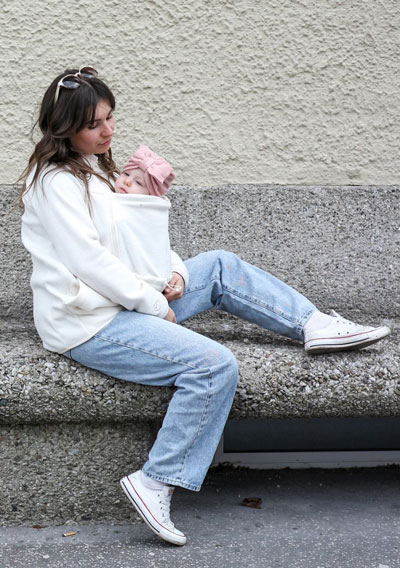SUSTAINABLE - AND CHEAPER!
Years ago, mamalia set itself the goal of operating more sustainably - sustainably in the environmental sense, but also in the financial sense - without sacrificing quality. Katja Veth, head of shipping at mamalila, gives an overview of the most effective measures in the company.
Because it is easiest, we started with the "lower hanging fruits", i.e. things that are relatively easy to change. We asked ourselves the following questions: Which reduction in resource consumption is easy and quick to implement, cost-neutral or even reduces costs? Where can we save without reducing the benefit for the customer or the quality of the goods or services we offer? It quickly became clear to us that packaging often has no direct customer benefit, is short-lived, costs money and also creates unnecessary waste. Some packaging has to be natural, but not all is absolutely necessary. The boxes for returns, for example, were often completely intact except for a few wrinkles and the sticker remnants from the previous customer shipment. We could reuse them! At the same time, we thought about what customers would say if they received crumpled boxes. Would that suit our high-quality products? In the end, the solution was simple: we created a sticker that we put on every reused box. It says: "Please don't be surprised - for the sake of the environment, I am used several times. Thank you for overlooking my wrinkles, because I'm actually still in pretty good shape." The feedback from customers has been overwhelmingly positive. When they see that we reuse the box, they often write us very nice feedback when they return it. That makes us happy! In the meantime, up to 80 per cent of the cartons are used more than once, which means we order fewer cartons and pay less waste disposal fees - a win-win for everyone.
The success of this small action was so great that we looked for further ways to save money. After the cardboard box, we then "got to grips" with the polybag in which our jackets used to be packed. First our shipping department and then the storage department checked whether and if so, how badly the clothing would get soiled without a protective cover and how we could handle the labelling. When we finally realised that this plastic cover was actually of no use, we abolished it without further ado. This saves us the purchase costs, disposal costs, we have less effort with returns - and we save many kilogrammes of plastic. In total, we saved about 317 kilos of plastic and about 803 kilos of cardboard in 2020 through plastic-free packaging and cardboard reuse! This started a movement in our company. I soon noticed how much packaging waste was generated during the construction and dismantling of our stand. At the same time, there were old fabric banners in the corner that were no longer needed. So I sat down at the sewing machine and sewed packaging bags for all the items on our stand. This worked out great and our fair team is happy too, as they have much less packaging work to do when setting up and dismantling. The only waste we produced during the last trade fair set-up - that was at Kind + Jugend 2022 - was the coffee-to-go cups.
But that's not all, we are implementing many more ideas: Old cardboard boxes are used as cut protection, we give away large cardboard boxes from our deliveries via eBay as moving boxes and the remaining cardboard boxes are collected from us by a neighbouring company and used to make filling material for our own shipping.
I like the fact that here at mamalila there is always an open ear for sustainability issues and that all suggestions are taken seriously. For example, at my suggestion, the distribution of gummy bears as give-aways has been separated, as this also produces plastic waste. With our actions, we have also inspired retailers to accept less plastic.
Unfortunately, we can't influence everything, for example the wrapping of the goods that are delivered to us on pallets. We ourselves use stretchy tapes instead of film, which is of course more environmentally friendly than film. But we never run out of ideas for improvements: For example, we are currently thinking about when we should organise a mamalila "Ramada-ma" (Franconian for "clean up we do") and clear the ditches around our company building of rubbish. Once a process of thinking and change is underway, a new one soon begins, and so we become more sustainable bit by bit.
Foreword:
At mamalila, sustainability is an important principle of corporate management. It is lived openly and actively, because sustainable management at mamalila is not (only) the task of the management or a sustainability manager, but a concept that involves every employee. This not only means that many ideas and suggestions come from the team and the willingness to implement them is extremely high, but also leads to a high level of identification of the employees with the company. For new employees, it is often a convincing criterion to choose mamalila as an employer. It is important that sustainability does not remain lip service, but is actively implemented and honestly anchored in the company's goals.





